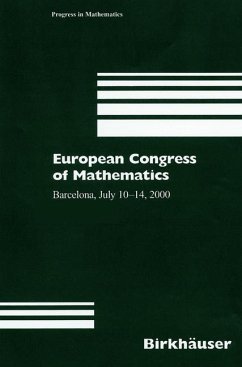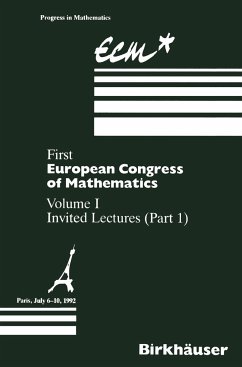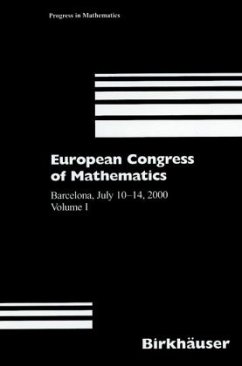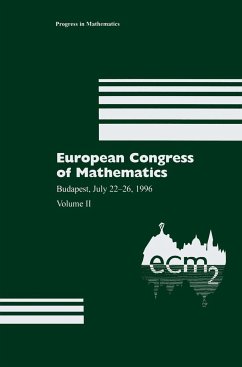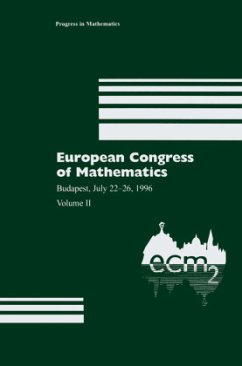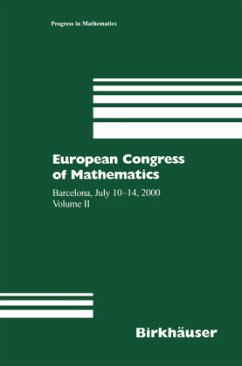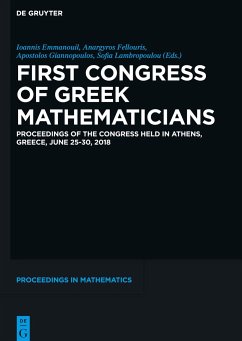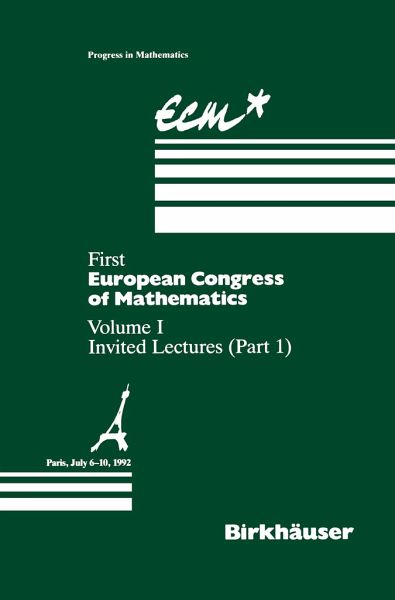
First European Congress of Mathematics Paris, July 6-10, 1992
Vol. I Invited Lectures (Part 1)
Herausgegeben von Joseph, Anthony; Mignot, Fulbert; Murat, François; Prum, Bernard; Rentschler, Rudolf
Versandkostenfrei!
Versandfertig in 6-10 Tagen
38,99 €
inkl. MwSt.

PAYBACK Punkte
19 °P sammeln!
The first European Congress of Mathematics was held in Paris from July 6 to July 10, 1992, at the Sorbonne and Pantheon-Sorbonne universities. It was hoped that the Congress would constitute a symbol of the development of the community of European nations. More than 1,300 persons attended the Congress. The purpose of the Congress was twofold. On the one hand, there was a scientific facet which consisted of forty-nine invited mathematical lectures that were intended to establish the state of the art in the various branches of pure and applied mathematics. This scientific facet also included pos...
The first European Congress of Mathematics was held in Paris from July 6 to July 10, 1992, at the Sorbonne and Pantheon-Sorbonne universities. It was hoped that the Congress would constitute a symbol of the development of the community of European nations. More than 1,300 persons attended the Congress. The purpose of the Congress was twofold. On the one hand, there was a scientific facet which consisted of forty-nine invited mathematical lectures that were intended to establish the state of the art in the various branches of pure and applied mathematics. This scientific facet also included poster sessions where participants had the opportunity of presenting their work. Furthermore, twenty-four specialized meetings were held before and after the Congress. The second facet of the Congress was more original. It consisted of six teen round tables whose aim was to review the prospects for the interactions of mathematics, not only with other sciences, but also with society and in particular with education, European policy and industry. In connection with this second goal, the Congress also succeeded in bring ing mathematics to a broader public. In addition to the round tables specific ally devoted to this question, there was a mini-festival of mathematical films and two mathematical exhibits. Moreover, a Junior Mathematical Congress was organized, in parallel with the Congress, which brought together two hundred high school students.







